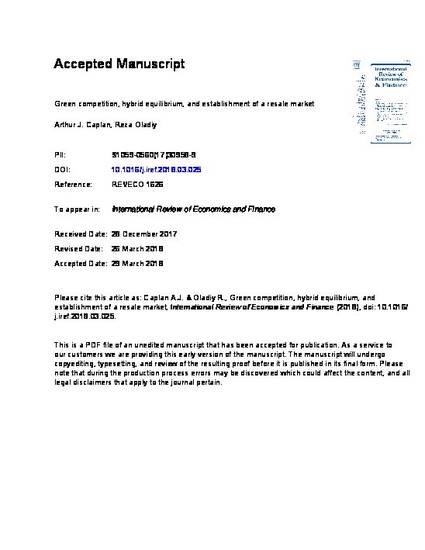
Article
Green Competition, hybrid equilibrium, and establishment of a resale market
International Review of Economics and Finance
(2018)
Abstract
This paper investigates competition between firms whose choices of how much “green effort” to devote
to building their reputations as socially responsible producers are determined in the contexts of
simultaneous-move and hybrid simultaneous/sequential-move Bertrand equilibria. We derive conditions
under which (1) the inter-temporal, green-effort reaction function of the firm with the less-aggressive
green strategy is non-monotonic, (2) the level of green effort chosen by the firm with the more-aggressive
green strategy increases when it views itself as the leader in a hybrid game rather than moving concurrently
in a simultaneous-choice game, and (3) the establishment of a resale market by the more aggressive
firm acts as a substitute for its choice of green-effort level. The sufficiency conditions underlying these
results impose qualitative restrictions on the more-aggressive firm’s lagged (i.e., reputational) and contemporaneous cross effects of its green effort on demand for the less-aggressive firm’s product, as well
as on the less-aggressive firm’s price markup and marginal cost associated with its production and green effort
choices, respectively.
Keywords
- green effort,
- Bertrand equilibrium,
- resale market
Disciplines
Publication Date
Spring March, 2018
DOI
10.1016/j.iref.2018.03.025
Citation Information
Arthur Caplan and Reza Oladi. "Green Competition, hybrid equilibrium, and establishment of a resale market" International Review of Economics and Finance (2018) Available at: http://works.bepress.com/arthur_caplan/124/
